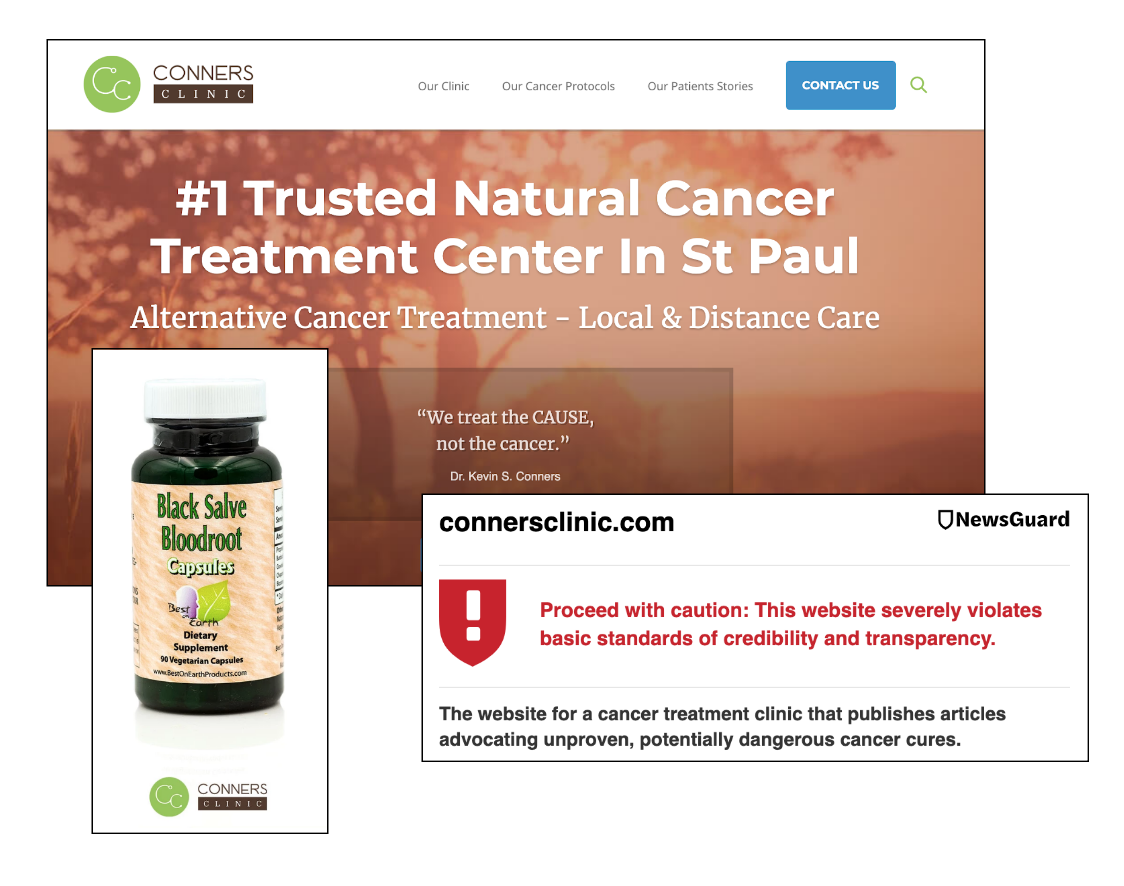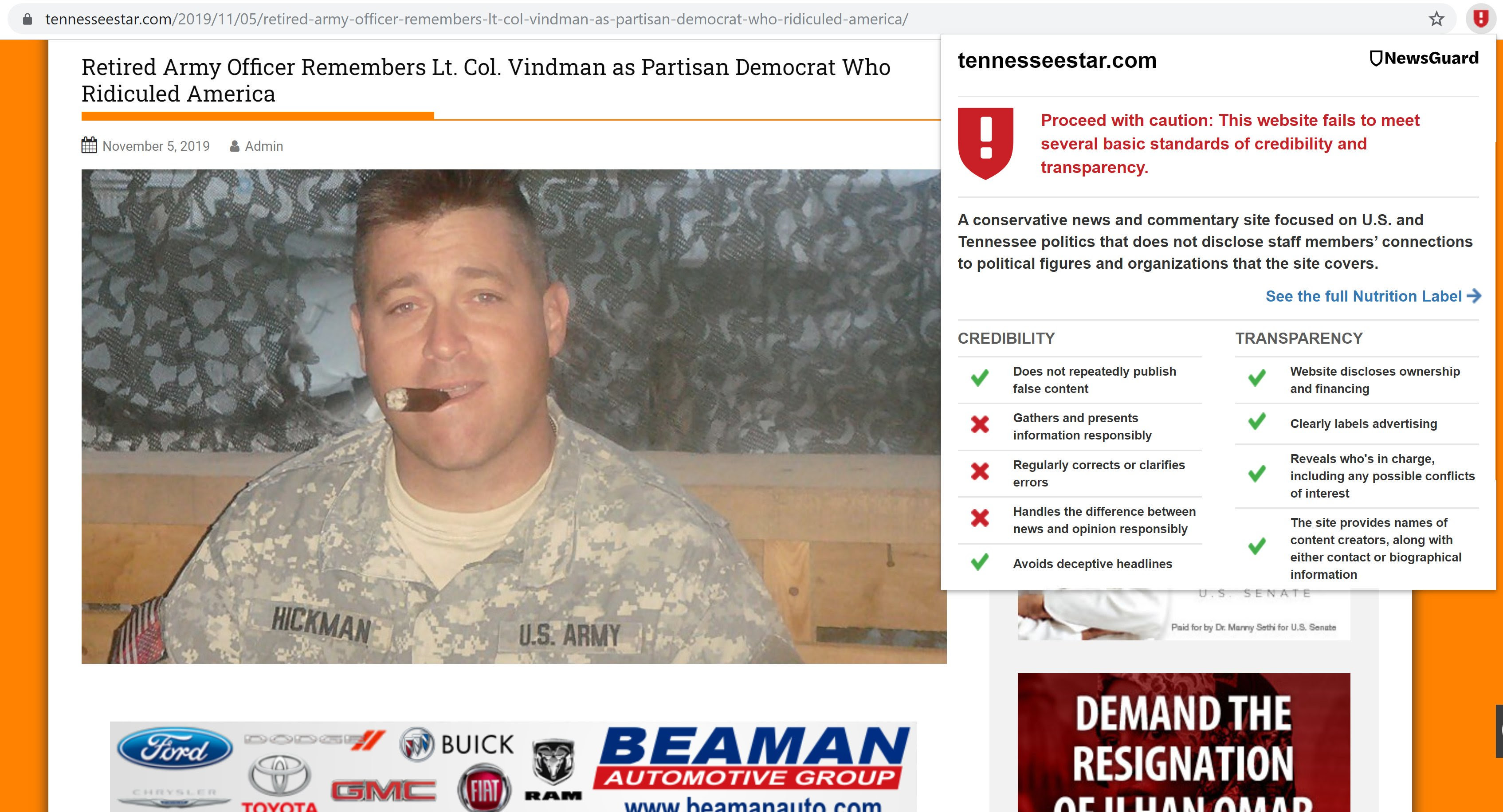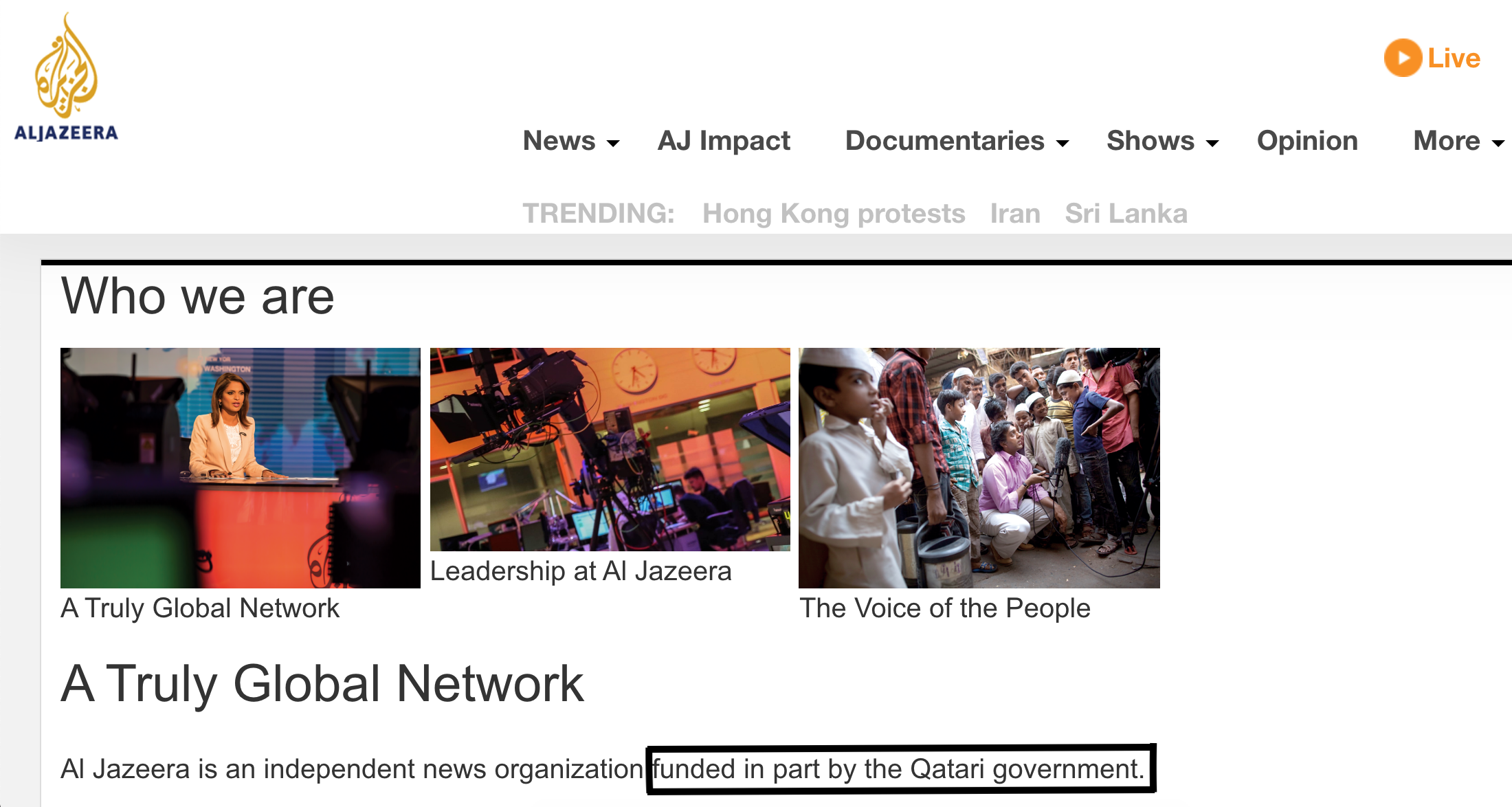Misinformation: The Numbers
Welcome to the first edition of NewsGuard‘s Misinformation Monitor, a newsletter that brings you reporting scoops and exclusive data.
Editor’s Note: As of February 2024 the Misinformation Monitor is now Reality Check, a weekly newsletter on misinformation and media online. Learn more and subscribe here on Substack.
Misinformation: The Numbers
The big story: Engagement with misinformation increased this month in the U.S. and Europe
Introducing the NewsGuard Red Index: In the past month, social media users in the U.S. shared and responded to links from sites NewsGuard rated Red (meaning they don’t meet basic standards of credibility and transparency) at a higher rate than the month before. We’ll be tracking the NewsGuard Red Index each month in the Misinformation Monitor.
- 6.69% of all engagement with news on Facebook, Twitter, and Pinterest came from sites NewsGuard has rated Red in the U.S., U.K., France, Germany and Italy. (Engagement refers to comments, likes, and shares on these platforms, measured with data from NewsGuard’s rankings and social media analytics platform NewsWhip.)
- Breaking it down: Engagement with unreliable news sites rated by NewsGuard in five countries was highest in the U.S., accounting for 7.93% of total engagement on Facebook, Twitter, and Pinterest. In France, engagement with Red-rated sites was 7.53%. Germany and Italy hit 5.82% and 4.49%, respectively— while in the U.K., it was just 2.52%.
Engagement with misinformation increased this month across the U.S. and Europe. Overall, the number of engagements with Red-rated sites increased 15.24% this month, driven by large increases in the U.S. and France of 18.47% and 20.39%, respectively.
- Why we should care: Facebook and Twitter have spent millions trying to reduce the spread of misinformation on their platforms. Despite that, engagement with misinformation sites is up substantially — both in the U.S., where a tight presidential primary and an impeachment inquiry have people across the political spectrum concerned about misinformation, and in Europe where platforms face increasing pressure from regulators.
The Players: Western Journal leads the way, as conspiracy theories and propaganda continue to drive engagement
There’s no single political theme that connects the top misinformation sites in the five countries where NewsGuard operates — except, perhaps, a conspiratorial worldview. Below, the most-shared Red-rated site in each country (with a link to each site’s NewsGuard Nutrition Label):
- WesternJournal.com (U.S., 9,655,007 monthly engagements.) claims to focus on the stories that matter to “Heartland Americans” but has a history of publishing conspiracy theories, like birther claims about Barack Obama or false assertions that a migrant caravan in central America was funded by philanthropist and political activist George Soros. See NewsGuard’s Nutrition Label.
- TruthTheory.com (U.K., 557,743 monthly engagements) says it publishes “thought provoking ideas,” which apparently include the false theory that the U.S. government was behind the Sept. 11 terror attacks and other ideas that pique the curiosity of the site’s founder, a self-declared conspiracy theorist. See NewsGuard’s Nutrition Label.
- Fr.sputniknews.com (France, 695,891 monthly engagements), the French-language version of the Russian state-owned news agency, aims to spread propaganda and disinformation that promotes Russian interests. See NewsGuard’s Nutrition Label.
- EpochTimes.de (Germany, 639,893 monthly engagements) is the German-language site of a right-wing American newspaper associated with Falun Gong, a religious-spiritual practice banned in China that opposes the Chinese government and communism. Its site showed a homepage filled with anti-China articles that praised the Hong Kong protestors and promoted conspiracy theories about 5G technology being developed in China. See NewsGuard’s Nutrition Label.
- ImolaOggi.it (Italy, 736,243 monthly engagements) claims to be a local news site covering the country’s northern city of Imola. However, it mainly covers politics and immigration in a way that is often hostile to — and factually incorrect about — Muslims. See NewsGuard’s Nutrition Label.
Facebook directs users to sites publishing dangerous, untrue health info

One of the top Facebook search results for black salve, an unproven cancer treatment, led readers to a site filled with misinformation, NewsGuard reported. The site, ConnersClinic.com, claims that a topical substance called black salve (bottles of which are sold on the site) “kills cancer directly.”
- Reality check: When applied to the skin, black salve destroys both healthy and diseased tissue. It leaves patients disfigured, according to the American Academy of Dermatology.
- The site also falsely claims that root canals cause cancer, referring to a study supposedly conducted by University of Glasgow researcher Robert Jones. Except Jones says he never undertook any such study: “This work has nothing to do with me, and I’m not aware that the study exists at all,” Jones told NewsGuard.
HEALTH CARE HOAX ROUND-UP
NewsGuard debunked many other bogus health claims recently. Here are a few:
- Cannabis is not a proven cure for cancer (as claimed by HealthyLifeBoxx.com, a site that doesn’t say who owns it or where it operates), according to the National Academies of Sciences, Engineering, and Medicine
- The artificial sweetener aspartame does not raise a person’s risk of developing cancer (as claimed by Canadian lifestyle site FamilyLifeGoals.com), according to the U.S. Food and Drug Administration and a study by the U.S. National Cancer Institute
- The vaccine for HPV is not raising cervical cancer rates (contrary to a post on Italian site Informalus.it)
Conservative site posing as local news organization spreads unsubstantiated claims about impeachment witness

When Lt. Col. Alexander Vindman testified Tuesday during the House impeachment inquiry into President Donald Trump, a story that criticized Vindman at length soon began trending after appearing on the Tennessee Star, a conservative news site. The article quoted Lt. Col. Jim Hickman, who had posted a detailed Twitter thread saying he served as Vindman’s superior in the army and reprimanded Vindman for sharing his “somewhat radical left-leaning ideology” with other soldiers. The Tennessee Star did not appear to try to contact Hickman or Vindman to confirm the story.
- Politically motivated sites posing as neutral local news sources are growing more common, according to Dartmouth professor Brendan Nyhan (who is partnering with NewsGuard on another research project). The Tennessee Star claims to be “unbiased” despite its regular anti-Democrat coverage, and its parent company Star News Digital Media runs an online store that sells Trump-related products. The Tennessee Star’s slogan — “leading the way in news and education” — is misleading.
- NewsGuard rated TennesseeStar.com Red because it doesn’t reveal its political agenda or its owners’ conflicts of interest with the people the site covers, and does not gather and present information responsibly. See NewsGuard’s Nutrition Label.
Tip Off: 90% of unreliable sites don’t tell you who owns them
If a website is being evasive about who funds it, odds are the site violates other basic standards of transparency and credibility. Ninety percent of Red-rated sites don’t disclose details about their ownership. Compare that to just 28% of Green-rated sites that fail on this criterion.
“SLEEPER SITES”
- Knowing who’s paying to feed you the news is important. A site that appears harmless, or poses as a local news site, could be what NewsGuard calls a “sleeper site” — publishing relatively mundane, noncontroversial content for some period of time to gain followers and readers before beginning to publish articles that push a certain political agenda. If the site doesn’t disclose its funders, it could be backed by a foreign government pushing propaganda, or a political party angling for votes.
Information about a site’s ownership provides key details about the site’s identity, which makes it a crucial component of transparency. NewsGuard fails sites on this criterion whether they’re sketchy sites that deliberately publish false content, or are simply trustworthy brands with insufficient About Us pages. Forty-four percent (1,655 sites) of the 3,700 sites rated by NewsGuard fail this criterion.
We want people to game our system
If a site improves its journalistic practices — if it adds information to meet NewsGuard’s standard — NewsGuard analysts update the site’s rating and give the site credit for making a change. Two examples: Al Jazeera and conservative website TheMichiganStar.com.

- Al Jazeera’s connection to the Qatari government, going back to the news organization’s founding in 1996, is well documented. But until earlier this year, AlJazeera.com made no mention of Qatar, failing to disclose government ownership and control to its readers. The site updated its About Us page to declare that it is “funded in part by the Qatari government” after Al Jazeera executives met with NewsGuard, which initially rated Al Jazeera red for not disclosing its connection to Qatar.
- The Michigan Star, a sister site to the Tennessee Star, launched in July to publish conservative news and commentary about U.S. and Michigan politics. After NewsGuard reported that the site failed to disclose its owner was Star News Digital Media, which operates a multi-state network of conservative websites, TheMichiganStar.com added information about Star News’ senior management. “The senior management team of Star News Digital Media are the majority shareholders of the company,” the site now states clearly.
But failure to disclose ownership is not universal.
Take a look at the breakdown by country:
- Germany: 80.95% of sites registered in Germany disclose ownership and financing.
- Italy: 73.75%
- United Kingdom: 63.73%
- France: 54.21%
- United States: 51.06%
It’s no accident that German sites are so good at this. It’s the law: Germany’s Telemedia Act requires website operators to disclose certain details about their identity. This means German sites (and German-language sites in Austria and Switzerland, which have similar laws) need to clearly say the name of the person or company who owns them, their tax identification number, physical address, and contact information.
- The penalty for refusing? 50,000 Euros.
Correction: This piece has been updated to correct the percentage of engagements with red-rated sites in the U.K. Previously, the method used to calculate the percentage did not account for red-rated sites from the U.S. that also receive engagements in the U.K. We apologize for the error.
| Send us ideas or questions. |
Download NewsGuard
Install our browser extension to see NewsGuard’s shields in your search engine results and Facebook, Twitter, and LinkedIn feeds on your desktop browser.